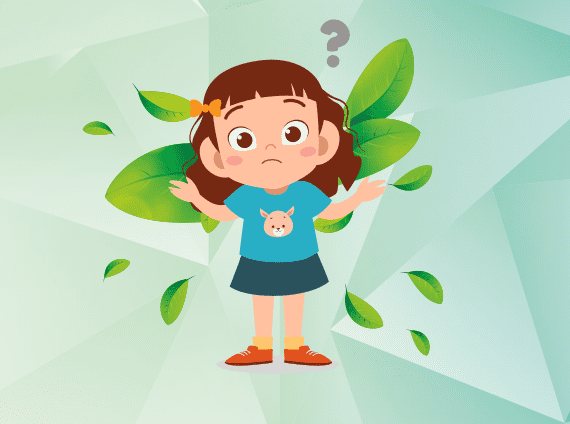Unexpected solutions come to the rescue. Based on the experience of other mothers, we found out how to help your child overcome this stage faster and easier, and you can save your nerves.
Just a couple of days of “therapy” and your baby will be unrecognizable. He will again become sweet, affectionate, pliable and joyful. Along with his good mood, peace will return to you, and you will be able to enjoy being parents again!

Sympathy and understanding
Many parents try to be patient with manifestations of character:
“Yes, I understand how sad it is for you to eat with a red fork”;
“I would bring you 105 pancakes if we were at home, believe me”;
“Oh, honey, yes, I know, going to bed is no fun at all...”
...but none of the phrases sound convincing enough.
None of this works in relation to whining. Whims have nothing to do with real experiences; they should not be encouraged, much less encouraged. Whining often goes hand in hand with yelling, aggressive behavior and anger. All these changes in the child’s behavior can be correlated with growing up and the “three-year crisis.”

Rule one: exclude TV, phone and tablet
No, of course, you are not ardent opponents of TV. You yourself love to spend an hour or two in the evening watching your favorite TV series or program. But the negative effect that television has on the children's psyche cannot be denied, and there are times when the flow of information from the screens should be paused.
At two or three years old, even one hour a day spent watching TV or a tablet can be called too much. Ban electronic entertainment on weekdays. Leave cartoons and gadgets for the weekend. Don’t worry that such innovations will be painful for the child, think about the great benefits this will bring to his psyche. In just a couple of days, the baby’s behavior will improve, excessive anxiety and aggression will disappear, and whining will decrease or disappear altogether.

Even children's “harmless” apps and programs can cause bad behavior and emotional fatigue. Find ways to replace TV and gadgets with activities that don't involve electronic devices. You will be surprised how quickly your life will improve.
How to stop a child from crying for every reason
A constantly whining child is a big problem for parents. Before scolding or punishing your child, find the true reason for this behavior. Maybe he doesn't get enough sleep? Then teach your child to go to bed on time.
Possible causes of tearfulness:
- The baby is sick - a cold or something hurts (teeth cutting, intestinal colic, tummy is swollen).
- Lack of parental attention.
- The desire for self-realization.
- A wish that parents refuse to fulfill.
- Bad mood.
- Emotional or psychological fatigue.
If the baby is whining or hysterical, parents absolutely should not:
- telling your child that you know better the reason for his tears, without taking seriously the child’s explanation of why he cries or whines. In this way, you can discourage sharing your thoughts and experiences with your parents;
- be inconsistent in decisions: if in a store a child’s request to buy a toy is answered “no,” that means no;
- alternately apply “their” methods of education by family members: mom, dad, grandparents;
- unknowingly take out fatigue and bad mood on the baby.
Attention! If you follow these four rules, the problem will disappear in a short time.
If tearfulness and whining have already become serious, use the advice of psychologists and pediatricians:
- look deeply for the reason for the child’s condition. The logic of a child can be absurd for an adult, but for him it is important;
- do not be afraid to explain to your baby in his childish language the reasons for your decisions and actions, citing the possible consequences of his behavior. Speak clearly about your feelings and emotions (I’m tired, glad that..., upset that...);
- avoid two extremes: all attention to the child or insufficient attention, which leads to crying and whims;
- allow the child to assert himself - to make decisions in those areas of life where it is not dangerous and does not threaten health. Respect his personality from an early age;
- keep calm. If you react to whining by shouting, you won’t be able to wean it off. It is only possible to consolidate this state of the baby;
- switch your child’s attention to an interesting thing (toy, book, game, etc.). This is not a way to wean off tearfulness, but it will help smooth out a crying attack;
- Do not give your child excessive loads according to his age.
Take our tests and find out for sure!
Back to list of questions
We have hundreds more answers to questions about parenting!
ARE YOU TAKE CARE OF YOUR CHILD CORRECTLY?
Take our short 10-question test and find out for sure!
SIMILAR ARTICLES

At what age can children eat squid?
Starting to give your child squid is an experiment that is the responsibility of the parents. Feeding children squid...

At what age can children drink mint?
Children's doctors recommend not to give mint-based infusions to children under 3 years of age, it is better...

Can children drink protein?
Doctors do not agree on protein intake for children. Firstly, each baby has his own diet...

How to cook pink salmon for a child?
Deliciously and quickly prepare pink salmon for a child. Fish delicacy for complementary feeding. An easy recipe recommended for children...

Can children drink Borjomi?
The opinions of children's pediatricians about whether children can drink Borjomi differ radically, but they are similar in that...

When can you give your child wheat porridge?
Not all parents agree that porridge is the best breakfast for a child. Despite…

When can a child be given sorrel soup?
According to the recommendations of pediatricians and other children's specialists, sorrel should be eaten with caution, especially...

Can black cumin oil be given to children?
Black cumin oil is known for its beneficial properties. As adherents of Islam say, it cures any disease except...

Can children drink hibiscus tea?
Red hibiscus tea: features of serving the drink, taking into account children's age, personal characteristics and time of consumption

Can children have mint tea?
Doctors allow taking the herbal drink no earlier than 6 months with 1-2 teaspoons and consider...

Cookies recipes for 1 year old children?
Homemade cookies are healthy sweets for a one-year-old child. Recipes for delicious treats recommended by nutritionists and pediatricians.

Can children be given rosehip syrup?
Children can be given rosehip syrup, and in order not to harm, but to strengthen the baby’s health, you should adhere to...
Rule two: we introduce a ban on whining
This may sound strange, but you just need to stop your child from whining. As soon as he starts whining, say: “Stop, let’s not whine, you can say everything with words.” If this phrase doesn’t work, say another: “We’re not whining here. You can go to your room, lie down and think. Then come back." Speak without aggression, in a calm tone.

Rest assured, the whining taboo works great. For a couple of minutes, the baby will think about what’s what, and then repeat his request or wish, but in a normal, natural tone. It will take a day or two to let the child get used to the new style of communication, then he will understand that the plaintive moans will no longer go away, and will stop whining.
How to stop a child from begging for expensive toys?

Psychology and behavior.
Let's start with the most important thing! You should understand the child’s psychology and what he is guided by when asking for this or that thing. Children often think that having a lot of toys, they accordingly expand their social circle and become more significant. They, unconsciously of course, but feel important. Some people try to make purchases to replace the lack of communication with their parents, or they think that with more toys they will make new friends. Of the lighter psychological aspects, there are simply whims, a reluctance to give in to a parent who refused to buy the desired toy. That's why you sometimes see children throwing tantrums and behaving inappropriately - falling to the floor crying and screaming, resisting or running away, unwilling to leave the store.
Also, do not forget about children who live in wealthy families, where mom and dad satisfy all the needs of their children. Such a child quickly loses interest in the toy he recently bought, and he does not try to come up with new games with it or other uses. And in the end, such a child finds nothing easier than asking his parents for a new game. And since now in every shopping center there are many stores with names “Toys” and “For Children” in different colors, the child immediately asks you to come in or drags you to the store.
Let's also look at the behavior of younger children, from two to four years old. Such a child, of course, is a little more naive in his thoughts and reasoning. For them, just going to the store is already important and of course they want to participate in everything. It is important to remember that a small child does not understand the value of money, but he understands that he has come to do something important. Therefore, when hearing the familiar “Buy!”, most people think that this is a whim, but this is not so. With his persistence or tenacity, he is trying to show that his voice is also important, to show his significance and individuality. It is not uncommon that children adopt the behavior of their parents, copy them or try to imitate them, seeing how they behave. So you should pay attention to your behavior, especially in front of children.
Further, television advertising and in-store marketing have a huge impact on children. A child, watching cartoons, with a certain frequency sees advertising inserts where popular brands advertise their toys in a very fun and interesting way, food products look tasty and appetizing. All this is quickly fixed in the baby’s fragile brain! And naturally, when a child comes to the store, he sees familiar colors and shapes, familiar names (for older children). Marketers usually place such products at children’s eye level; prices are usually not high, since these are candy bars, sweets and small-sized trinkets. The parent, of course, for the most part, will not refuse and will buy the child what he wants. This creates a constant desire to get a toy, and with age, things and goods of interest become more and more expensive. And shopping with constant purchases has formed a certain addiction. This is becoming a bit of a problem. How to decide?
Solution to the problem.
Here, Dear Parent, you will have to be patient. All we need is to tactfully and step by step solve our problem. I would like to point out right away that nothing will be solved by shouting and violence; the child may close himself off and not feel right around his parents. Let's start with the simpler process and end with difficult cases.
· The most obvious way is to leave the child at home with the grandparents, if possible.
· If you accidentally find yourself in a toy store, the easiest and most effective way to say that you don’t have money with you or don’t have a wallet.
· When going to the store, the child should be as full as possible. A well-fed child is less emotionally active and will behave calmer and more measuredly.
· Try to take his favorite toy to the store. And when asked to buy something, you can start a dialogue about how his toy will get bored, and whether his toy will be offended that he chose a different kind of fun? In general, try to distract him, play on his love.
· Discuss and make a shopping list together in advance. It is important to talk to your child that you have chosen important purchases and are not yet ready for extra expenses.
· In a timely manner, before going to the store, explain to your child the importance of shopping and why you cannot buy everything. An example is that next time you won’t have enough money to go to the store.
Support
It happens that the baby is tired, he is in a bad mood, he does not feel well. Then a little sadness and sadness are quite appropriate. Don't demand superhuman capabilities from a 3-year-old. Never push away a yearning child. Caress, listen, hug.
Let such phrases as “boys never cry” or “why are you upset because of such nonsense” forever leave your everyday life. Be attentive and patient. After all, sometimes the wrong color spoon can really be a cause for sadness. It’s good that solving this problem is very simple - just change the cutlery. Agree, this is not at all a reason for a nervous breakdown for mother and child.












